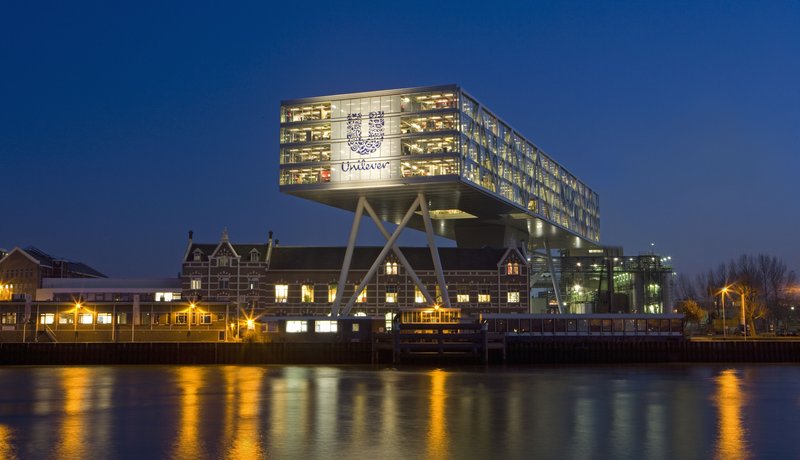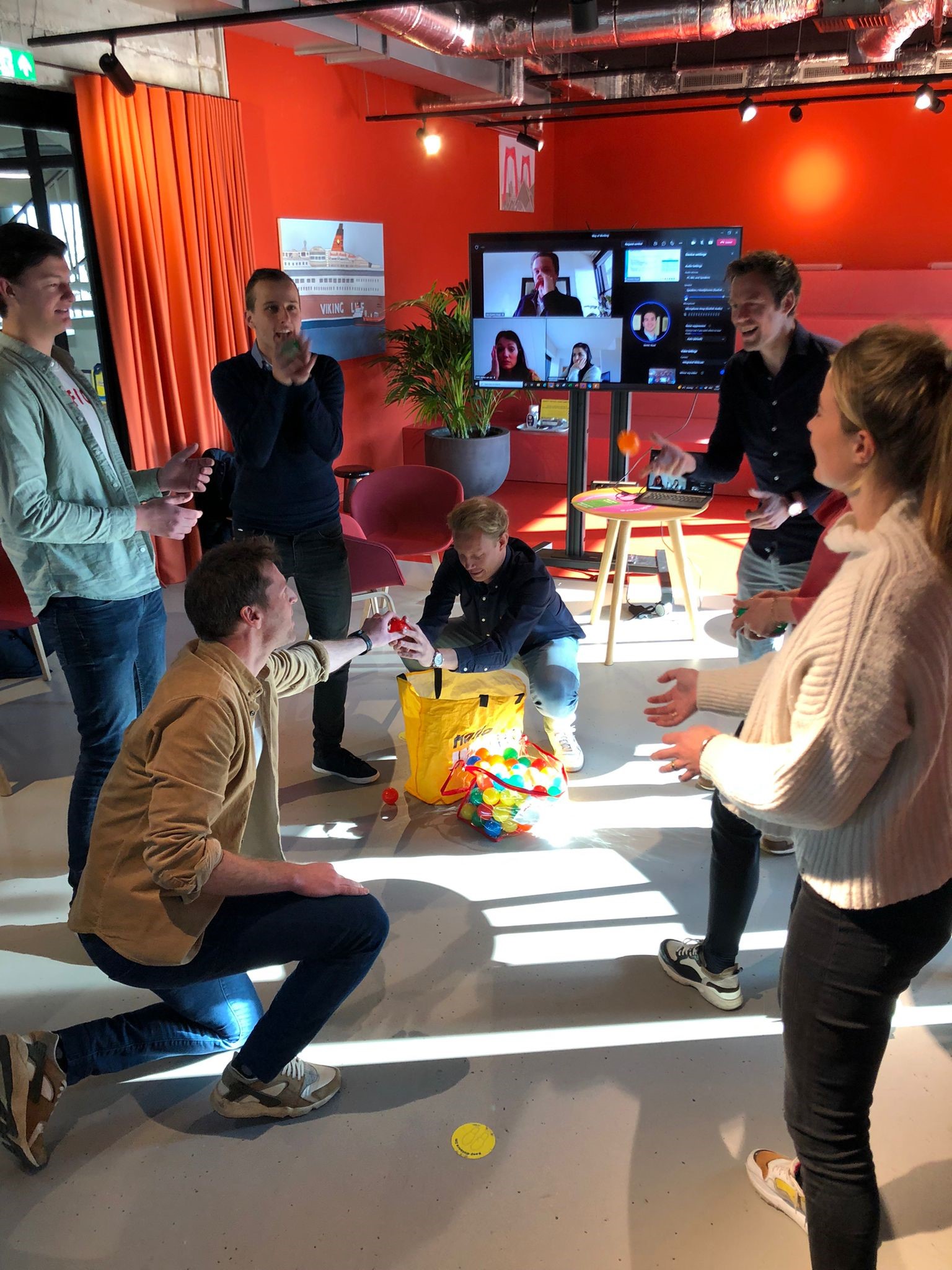Agility as the key to success: Unilever Benelux’s Agile Transformationg.

Context.
Unilever is a leading company in the consumer goods industry. It was founded in 1929 through the merger of Lever Brothers from the United Kingdom, known for soap production, and the Dutch Margarine Unie, focused on margarine. Today, Unilever generates approximately €54 billion in global revenue, with Unilever Benelux contributing around €1 billion. The company is known for iconic global brands such as Dove, Knorr, Lipton, and Ben & Jerry’s, while in the Netherlands, local favorites like Andrélon, Unox, Robijn, and Zwitsal are part of its portfolio.
Between 2018 and 2022, Unilever Benelux underwent a large-scale Agile transformation at its regional headquarters. Ruud played a key role in this transformation, leading the initiative for one year together with his team as an internal employee.
Insight.
After several years of strong business performance, the organization recognized that further growth could not be achieved simply by working harder—it required working smarter. The leadership team set out to create more value, sharpen focus, become more customer-centric, strengthen execution, and improve employee well-being.
In their search for how to achieve this, they saw the potential of a large-scale Agile transformation involving approximately 700 employees at the Benelux headquarters. The goal was to introduce a new way of working that would enable faster decision-making, greater alignment, and a healthier, more empowered work culture.
This transformation aligned with Unilever’s broader ambition to respond more effectively to changing consumer demands and market dynamics by adopting Agile principles such as transparency, empowerment, and rapid delivery of results.
Activation.
Due to the complexity and scale of the organization, Unilever Benelux decided—fully in line with Agile principles—to launch a pilot within the ice cream category. The transformation began deep within the organization, and as the pilot proved successful, it quickly gained traction and expanded upward toward the leadership team.
Two pilot teams were selected within the ice cream division. Both began by implementing the Scrum methodology. The teams worked in two-week sprints, setting clear goals at the start of each cycle. Every day, they held short stand-up meetings to discuss progress and raise any blockers. At the end of each sprint, they gathered feedback by showcasing their work to each other and key stakeholders. They also held retrospectives to reflect on team collaboration and identify improvements.
Each team was supported by an Agile Coach who helped them adopt the Agile mindset, tools, and processes. Coaching was intensive at the start and gradually reduced as teams became more confident and self-sufficient.
Because Agile emphasizes continuous improvement, the teams quickly learned what worked for them and what didn’t. Rather than rigidly following frameworks, they adapted their approach to fit their context. The results were quickly visible: not only did business performance improve through sharper focus, but team morale and well-being also increased.
The pilot expanded across the entire ice cream category, followed by the personal care and foods divisions, as well as supporting functions like HR. Eventually, around 70 teams adopted Agile ways of working.
In parallel, the leadership team worked continuously to sharpen strategic goals and clarify responsibilities using OKRs (Objectives & Key Results). Each quarter, the entire organization came together to review progress, align on new priorities, and identify what support was needed to achieve them. This quarterly rhythm created focus and prevented time and resources from being spent on initiatives that didn’t contribute to the strategy.
To embed Agile thinking and skills across the organization, a comprehensive training program was launched. Hundreds of employees were trained in areas such as team collaboration, prioritization, feedback, stakeholder management, and specific roles like Scrum Master, Product Owner, and Lean practices.
While external consultants supported the early stages of the transformation, Unilever gradually built an internal team of five Agile Coaches. These coaches were trained by the consultants to ensure long-term capability within the organization. The internal coaches supported leaders and teams through on-the-ground coaching, training, and strategic guidance.
Impact.
The implementation of the new way of working and cultural shift had a significant impact on Unilever Benelux. It helped sharpen focus on strategic goals and improved alignment across departments. Teams collaborated more effectively, which led to increased productivity. Innovation accelerated across the organization, driven by the use of OKRs and a more empowering leadership style.
Employees gained greater clarity on what needed to be delivered and were encouraged to determine how best to achieve those goals themselves. This autonomy fostered ownership, creativity, and accountability.
To this day, Unilever Benelux continues to use Agile principles and the OKR framework to track strategic progress and deliver results – contributing to its success in the highly competitive consumer goods market. This mirrors Unilever’s global approach, where enterprise-level Agile practices are anchored in four pillars: ruthless priority setting, quarterly business reviews, empowered teams, and a leadership culture that supports continuous learning and adaptability.
Annemarieke de Haan, General Manager Unilever Benelux reflects: “At Unilever Benelux, Ruud and his team implemented Agile ways of working at both the senior leadership and team levels. This dual approach helped sharpen focus and improve collaboration across teams.”
